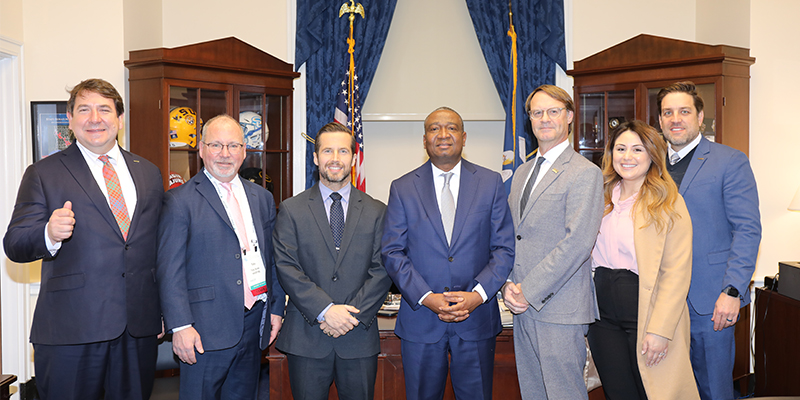By Toby Burke
Logistics and warehouse facilities play a critical role in goods movement and the supply chain for meeting the needs of consumers, governments and businesses across North America. The essential role that these facilities play, as well as their economic contributions and job creation, must be taken into consideration in policy debates that could affect their viability. However, many state legislatures are currently considering anti-warehouse legislation, similar to California’s Assembly Bill 98, that would hinder future development of these facilities.
As background, California lawmakers quickly “gut and amended” Assembly Bill 98 in the final three days of the session last year. The bill was amended to include flawed and controversial anti-warehouse language without any notice or input from the commercial warehouse and logistics industry and other stakeholders. The legislation’s disruption of warehouse and logistics development will significantly impact the state’s supply chain. Several provisions of the legislation from the California Business Properties Association (CBPA) include:
- Mandatory distances based on facility size and proximity from vaguely defined “sensitive receptors.” This includes facilities over 250,000 square feet having loading bays at least 500 feet from a receptor, and 300 feet for those under 250,000 square feet.
- Facilities within 900 feet of a sensitive receptor must include buffers and other mitigation measures to lessen community impact.
- Expansion of existing facilities by 20% or more will be subject to the provisions of AB 98
- Restrictions of truck routes based on sensitive receptors.
- Warehouse and logistic developers must replace each residential property demolished in the future and within the last 10 years with two affordable housing units.
- Logistic facilities development restricted to industrial-zoned land, with any rezoning to include additional environmental mitigation standards.
- Implementation of air quality monitoring and reporting to the state legislature.
NAIOP of California [the combined efforts of NAIOP chapters in California] and CBPA will be returning to the state capital this year seeking amendments that will provide more definition and clarity for logistics development. This will include clarifying that the enforcement of AB 98 rests only with the state attorney general and the avoidance of frivolous residential housing applications intended to impede warehouse and logistic development.
The anti-warehouse and logistic legislation in California has led to the introduction of similar legislation in other states by legislators arguing community concerns, greenhouse gas reductions, NIMBYism and other concerns. These states include New Jersey (Bill A5241), Oregon (House Bill 3062), and Washington state (HB 1303/SB 5380, also referred to as the CURB Act).
The New Jersey chapter has recognized the onslaught of anti-warehouse initiatives at both the state and local levels and has taken a proactive approach in responding to the characterizations of the warehouse and logistics industry by policymakers. The chapter is a founding member of Circulate New Jersey, a coalition that intends on changing the narrative by highlighting the benefits of the industry. These benefits include providing economic growth, job creation, professional development and the environmental rehabilitation of properties for “providing goods and services directly to your doorstep.” The coalition will utilize various platforms for preemptively educating the policymakers and the general public on the benefits.
In addition, Congresswoman Mikie Sherrill (D), gubernatorial candidate for New Jersey governor, recently announced her support for a moratorium on warehouse development citing vacancy levels and environmental impacts on communities. Her announcement drew a direct response from NAIOP New Jersey CEO Dan Kennedy:
“We have seen comments on warehouse development from a few candidates, including Congresswoman Sherrill, citing discussions with concerned citizens and the DEP. In our next Governor, New Jersey needs someone who will listen to all voices before forming their judgement on important land use matters. NAIOP NJ does not support a statewide moratorium for any class of real estate. We do not believe the Governor of New Jersey has the legal authority to take such a punitive and unnecessary action – overrunning local decisions to increase tax ratables and replace obsolete real estate with new, higher-demand product, and disrespecting the constitutionally protected rights of property owners – regardless of what they say on the campaign trail.”
The engagement by New Jersey and other NAIOP chapters is important for providing state lawmakers with a needed perspective from the industry on warehouse ban initiatives. NAIOP Corporate and several chapters have been sharing strategies to influence the outcome of these initiatives and stem the tide of them occurring in other states.








